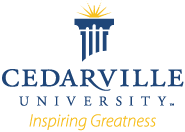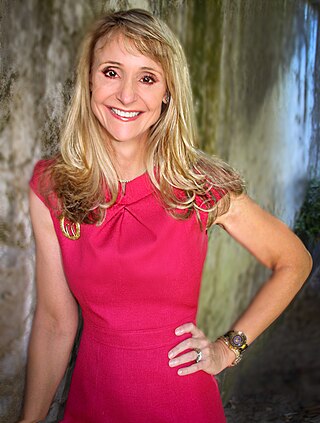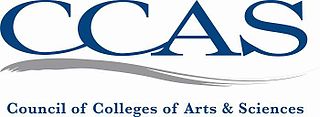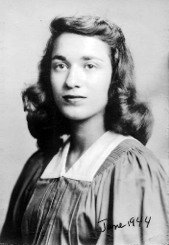Related Research Articles

Title IX is the most commonly used name for the landmark federal civil rights law in the United States that was enacted as part of the Education Amendments of 1972. It prohibits sex-based discrimination in any school or any other education program that receives funding from the federal government. This is Public Law No. 92‑318, 86 Stat. 235, codified at 20 U.S.C. §§ 1681–1688.

The University of the Cumberlands is a private Christian university in Williamsburg, Kentucky. Over 20,000 students are enrolled at the university.

The American Association of University Women (AAUW), officially founded in 1881, is a non-profit organization that advances equity for women and girls through advocacy, education, and research. The organization has a nationwide network of 170,000 members and supporters, 1,000 local branches, and 800 college and university partners. Its headquarters are in Washington, D.C. AAUW's CEO is Gloria L. Blackwell.

Cedarville University is a private Baptist university in Cedarville, Ohio. It is chartered by the state of Ohio, approved by the Ohio Board of Regents, and accredited by the Higher Learning Commission.
The Independent Women's Forum (IWF) is an American conservative, non-profit organization focused on economic policy issues of concern to women. IWF was founded by activist Rosalie Silberman to promote a "conservative alternative to feminist tenets" following the controversial Supreme Court nomination of Clarence Thomas in 1992. IWF's sister organization is the Independent Women's Voice (IWV), a 501(c)(4) organization.
The Office for Civil Rights (OCR) is a sub-agency of the U.S. Department of Education that is primarily focused on enforcing civil rights laws prohibiting schools from engaging in discrimination on the basis of race, color, national origin, sex, disability, age, or membership in patriotic youth organizations.

The American Association of Colleges and Universities (AAC&U) is a global membership organization headquartered in Washington, D.C., United States. It works to improve quality and equity in undergraduate education and advance liberal education.

Laura Kipnis is an American cultural critic and essayist. Her work focuses on sexual politics, gender issues, aesthetics, popular culture, and pornography. She began her career as a video artist, exploring similar themes in the form of video essays. She is professor of media studies at Northwestern University in the Department of Radio-TV-Film, where she teaches filmmaking. In recent years she has become known for debating sexual harassment and free speech policies in higher education.
Sexual harassment in education in the United States is an unwelcome behavior of a sexual nature that interferes with an American student's ability to learn, study, work or participate in school activities. It is common in middle and high schools in the United States. Sexual or gender harassment is a form of discrimination under Title IX of the Education Amendments of 1972. Sexual harassment involves a range of behavior from mild annoyances to unwanted touching and, in extreme cases, rape or other sexual assault.

Dr. Betsy Vogel Boze, is an American academic and higher education administrator who is currently serving as the ninth President of The College of The Bahamas. Previously, she worked as a professor of marketing, department chair, dean, and CEO of Kent State University at Stark, before serving as the president of The College of The Bahamas. She is a senior fellow at the American Association of State Colleges and Universities (AASCU), that researches alternative revenue streams for public colleges and universities.
LGBT student centers and services are administrative offices of a college, university or students' union that provide resources and support for lesbian, gay, bisexual, and transgender (LGBT) students. LGBT has expanded to LGBTQ2IA+ to include lesbian, gay, bisexual, transgender, queer, two-spirit, intersex, asexual and other identities.

Nancy Hogshead-Makar is an American swimmer who represented the United States at the 1984 Summer Olympics, where she won three gold medals and one silver medal. She is currently the CEO of Champion Women, an organization leading targeted efforts to advocate for equality and accountability in sports. Her areas of focus include establishing nationwide equal play, such as traditional Title IX compliance in athletic departments, protecting athletes from sexual harassment, abuse and assault, as well as combatting employment, pregnancy, and LGBT discrimination. In 2012, she began working on legislative changes to ensure that club and Olympic sports athletes were protected from sexual abuse. In 2018, the Protecting Young Victims from Sexual Abuse and Safe Sport Authorization Act of 2017, which she co-wrote, was enacted.

The National Association of Scholars (NAS) is an American 501(c)(3) non-profit politically conservative education advocacy organization. It advocates against multiculturalism, diversity policies, and against courses focused on race and gender issues.
Jennifer Joy Freyd is an American psychologist, researcher, author, educator, and speaker. Freyd is an extensively published scholar who is best known for her theories of betrayal trauma, DARVO, institutional betrayal, and institutional courage.
Martha Smeltzer West an American attorney and legal scholar who served as general counsel for the American Association of University Professors and Professor Emerita at the UC Davis School of Law. In 1998, she won California's first federal grant under the Violence Against Women Act, using the money to found the Family Protection and Legal Assistance Clinic at UC Davis Law School. West was the lead author of the 2005 white paper "Unprecedented Urgency: Gender Discrimination in Faculty Hiring at the University of California" and of the 2006 AAUP report "Organizing around Gender Equity."

The Council of Colleges of Arts and Sciences (CCAS) is an American association of college and university deans promoting the arts and sciences as leading influences in higher education.
Campus sexual assault is the sexual assault, including rape, of a student while attending an institution of higher learning, such as a college or university. The victims of such assaults are more likely to be female, but any gender can be victimized. Estimates of sexual assault, which vary based on definitions and methodology, generally find that somewhere between 19 and 27% of college women and 6–8% of college men are sexually assaulted during their time in college.

Bernice Resnick Sandler was an American women's rights activist. She is best known for being instrumental in the creation of Title IX, a portion of the Education Amendments of 1972, in conjunction with representatives Edith Green and Patsy Mink and Senator Birch Bayh in the 1970s. She has been called "the Godmother of Title IX" by The New York Times. Sandler wrote extensively about sexual and peer harassment towards women on campus, coining the phrase "the chilly campus climate".
The ARC3 Survey is a campus climate survey developed to assess perpetration and victimization of sexual misconduct on college campuses in the United States. In addition to measuring rates of sexual assault on campus, the survey also gathers data on those who are engaging in sexual assault. It was developed by a group of sexual assault researchers and student affairs professionals in response to the White House Task Force to Protect Students from Sexual Assault. The survey is free for college campuses to use. The study has been used to assess both graduate and undergraduate students.
Higher education in the United States is an optional stage of formal learning following secondary education. Higher education, also referred to as post-secondary education, third-stage, third-level, or tertiary education occurs most commonly at one of the 3,899 Title IV degree-granting institutions in the country. These may be public universities, private universities, liberal arts colleges, community colleges, or for-profit colleges. Learning environments vary greatly depending on not only the type of institution, but also the different goals implemented by the relevant county and state.
References
- 1 2 3 4 5 6 7 8 9 10 11 Project on the Status and Education of Women (Association of American Colleges) Records, 1969-1991; Finding Aid. Schlesinger Library, Radcliffe Institute, Harvard University, Cambridge, Mass.
- 1 2 Curtis, Mark (2014). "Crisis and Opportunity: The Founding of the Association of American Colleges" . Retrieved 21 March 2017.
- 1 2 3 Butler, Johnnella. "Carol Geary Schneider, Liberal Education, and Social Justice" . Retrieved 21 March 2017.
- 1 2 3 4 Gaff, Jerry (2015). "The Role of Faculty in the Transformation of AAC&U: A Personal Essay" . Retrieved 21 March 2017.
- ↑ "New funder coalition Press Forward will award more than $500 million to revitalize local news". Ford Foundation. 2023-09-07. Retrieved 2024-03-06.
- ↑ Musil, Caryn. "Gender Equity: Who Needs It?" . Retrieved 21 March 2017.
- 1 2 3 "AAC&U Congratulates Bernice Sandler on Induction into National Women's Hall of Fame". 28 October 2013. Retrieved 21 March 2017.
- ↑ "On Campus with Women" . Retrieved 20 March 2017.
- ↑ "National Coalition for Women and Girls in Education" . Retrieved 21 March 2017.
- ↑ Schneider, Carol. "A New Era of Gender Equity Work at AAC&U" . Retrieved 21 March 2017.